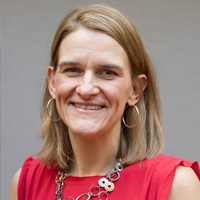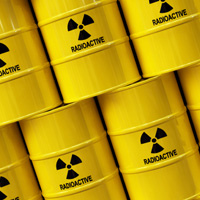Angela Schlater, Senior Program Officer of Nuclear Challenges, shares hope for the future of global peace and security because of inspiring civil society organizations and nuclear policy experts, even among setbacks.
As I write this, global security challenges worsen. Ukraine continues to fight for independence against Russian invasion. The crisis in the Middle East is becoming more severe, with increasing civilian fatalities. The threat of a nuclear-armed Iran grows more serious daily. Throughout it all, civil society voices remain vital, including the voices of our Nuclear Challenges grantees.
Amidst this turmoil, it is difficult to remain hopeful that things will improve. Working on important security challenges such as reducing nuclear risk is difficult, and at times, it can feel hopeless. But the dedication and persistence of civil society actors and nuclear policy experts is inspiring. In spite of seemingly insurmountable challenges, they continue to work toward and advocate for better policies and a more peaceful world.
We are proud to have supported many people and organizations throughout the 40 years of our work in the peace and security field. The biggest lesson learned from these grantees is to never give up hope. Hope is one of the most important tools we can call upon in our fight for peace and justice.
More recently, from 2015 to 2020, MacArthur provided just over $100 million to the nuclear field as part of our Nuclear Challenges Big Bet. Over the course of our capstone project, we have provided an additional $30 million to support the nuclear field as we end our program. At the end of 2023 we made our final grant payments. We will strive to be a productive partner to the individuals and organizations we support, fellow funders, and practitioners in the field until the end of the Nuclear Challenges program later this year. During 2024 we will continue to work with our learning partner, ORS Impact, and will share with the nuclear community what we have learned about progress over the course of the capstone project.
Reducing nuclear risk is an existential issue that existed long before MacArthur and will exist well beyond the Nuclear Challenges Program. The nuclear field is full of individuals and organizations dedicated to keeping us all safe. Because of them and the important work they do, we remain inspired and hopeful.




